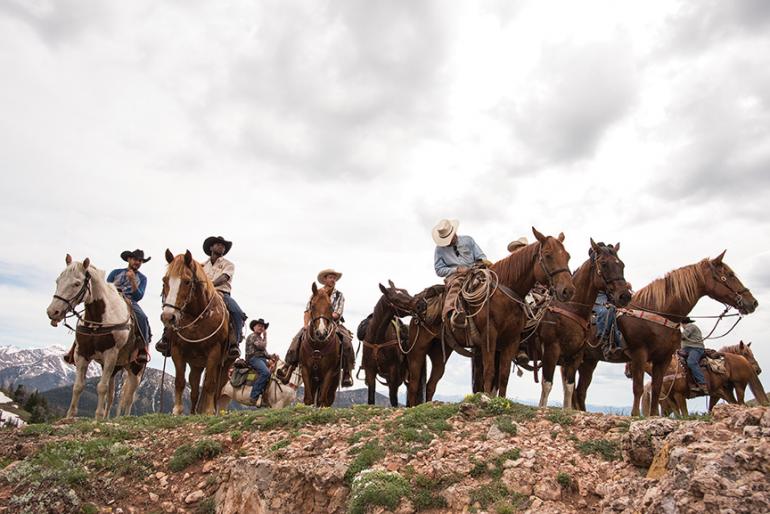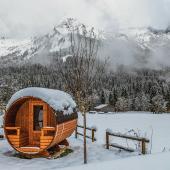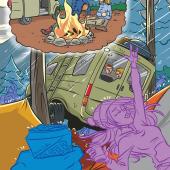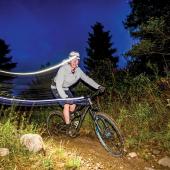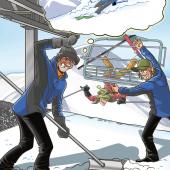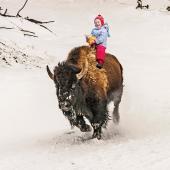Horseback Heroes
Using wilderness to help veterans.
“When riding a horse, we leave our fear, troubles, and sadness behind on the ground.” —Juli Carlson
It was more than an hour after I first shook Micah Fink’s powerful hand that I got a word in edgewise—and it wasn’t for lack of trying. People flocked to the burly, bearded man at the Broken Arrow bar in Manhattan to slap Fink on the shoulder, down a Cold Smoke, and shoot the shit with the smiling U.S. Navy veteran. Fink spent 10 years working in Navy SEAL teams, and it shows: he engages each person with reserved enthusiasm, intensity, and control—even as we move on to our second pitcher.
Now, as executive director of the local nonprofit Heroes and Horses, he’s using his military experiences as a driving force, dedicating himself to helping combat veterans re-enter civilian life and heal their mental and physical scars through a series of challenges on horseback in the Montana wilderness.
The goal of the nonprofit program is to use “the remote wilderness and the horse-human connection to challenge and inspire personal growth in combat veterans suffering from mental and physical scars.” Heroes and Horses collaborates with the Three Fork’s-based Mantle Ranch to provide three-day equine training camps for veterans who have traveled to Montana for the first phase of the three-step program.
“Change through challenge,” Fink says, “ is continuously challenging the things that challenge you.” Each phase of the program invites veterans into new and changing situations, from basic ground handling with the horses at the ranch to extensive solo high-alpine pack trips, and asks them to repeatedly adjust their perceptions and approaches. The idea is to give veterans a “chance to make peace with their past and replace devastating memories with positive ones,” according to the organization’s mission statement.
Once the vets are comfortable and capable handling the horses, they complete a rigorous six-day trip into the mountains and move on to phase two, where they learn packing and survival skills that they apply in the wilderness of the Beartooth Range, eventually pairing off and spending two days alone in the backcountry. During this time they bond with their horses and partners in a high-stress environment before the challenge of the final phase, where the vets work alongside an outfitter, applying their new knowledge and abilities.
Despite the progressive work of Heroes and Horses, the limelight seems to shine brighter on more well-known veterans’ organizations. But that may be changing, thanks to former Green Beret Ray Knell, who participated in a series of trips with Fink. Profoundly moved by his experiences, Knell wanted to give back, so in May of this year Knell set off on a rugged 1,000-mile solo journey along the Continental Divide from Lake George, Colorado all the way to Bozeman.
He rode out on his mare, Mustang Sally, packing a string of three mules. He cites the trip as an opportunity to train up his “ponies” (as the brawny vet fondly refers to his string), on the long, wild ride, while simultaneously attracting some well-deserved recognition for Heroes and Horses. Knell sees a natural correlation between horses and veterans. “When a veteran returns [from duty], he’s convinced he’s broken, convinced he’s a project horse,” he says. “But the truth is, there’s nothing broken about us.”
All money raised by Ray Knell is donated to Heroes and Horses, as well as the horses, mules, and tack on his pack string. If you’re interested in helping or applying for the free veteran program, visit heroesandhorses.com.


